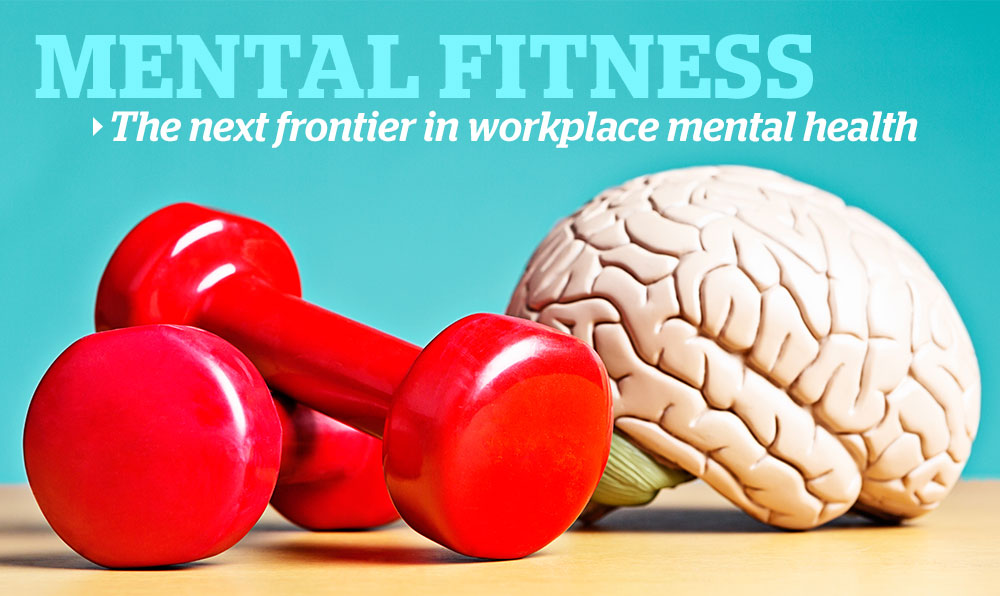

Columns/Blogs
Features
Employee Wellness
Mental Health
Generating self-love is not optional for emotional well-being
By Bill Howatt

EDITOR’S NOTE: ‘Mental Fitness: The next frontier in workplace mental health’ is a weekly series, in partnership with Dr. Bill Howatt of Howatt HR Consulting in Ottawa. This series takes a deeper look at mental fitness — an approach to prevent mental harm and promote mental health.
“Healthy self-love is perhaps one of the most important abilities we can have to tame our ego and to build our self-esteem.” — Dr. Bill Howatt
What does generating self-love mean? Is it possible to make daily micro-decisions that generate self-love? The answer is yes.
But what is self-love? Self-love is unconditional acceptance of you by you. It is the act of treating oneself with the same degree of empathy, kindness, tolerance, and respect we provide to someone we claim to love.
Self-love is a private victory; it is not about what we tell others. It is not about feeding our ego. Self-love is critical for good emotional well-being.
However, without the proper context, some may think this is another term for narcissism. When done correctly, self-love never takes away from another person’s ability for self-love. It is an intrapersonal skill that positively impacts how a person sees their place, role, and potential within their world.
Self-love is accepting who we are, believing we are good enough as we are, worthy of love, and we deserve what we want and have — personally and professionally.
A person with a high degree of self-love accepts that they fail. However, not believing in oneself and not trying is a more significant failure that can result in regret.
Many adults have never discovered the benefits of building the most important relationship they will ever have: the one with themselves.
We cannot live life to its fullest when we do not love who is looking back at us in the mirror. Self-love is not about narcissism. Too many think that focusing on self-love may feel wrong or even arrogant.
Psychologically Safe Workplace Awards provide employers tools, data on mental health
This is odd when we objectively think of any four-year-old child who tells us they feel happy, pretty, and know they are good at playing.
I wrote Sparkle Kitty, featuring my daughter Emily, who at age four displayed the wisdom and confidence I felt all adults could be reminded of.
Self-love creates the mindset to enjoy private victories that can fill our emotional cup with pleasant emotions, provide reserves to accept accountability for our mistakes, and encourage us to push through life’s setbacks.
Tips for generating self-love
Paying attention to what we say to ourselves can promote self-love that is positively influenced by what we believe we do well, what we think about ourselves, and the degree we can accept ourselves as we are.
Practising self-love can create an authentic and healthy relationship with oneself. A person with a high degree of self-love does not allow others to define their potential.
Following are activities that promote self-love through being mindful of what we focus on and recognize. Self-love is about self-acceptance and noticing all the good things that teach our brain we are good enough as we are.
- Moments that matter: Some moments happen when you are aware and acknowledge them, like the day you graduated from a course or achieved an important personal goal. You set the target, and you accomplished it.
- Private victories: At the end of each day, you can notice how you achieved some small successes. Not taking them for granted helps validate that you are doing well. Many find it easier to notice what did not work out, as opposed to highlighting the best parts of the day. These private victories can include having a conversation you were putting off, achieving your daily goals, or having a peaceful day.
- 10 things I like about me: Because many of us are skilled at finding what is not good in our life, pausing and reflecting on things you like about yourself is an excellent activity. “I am kind, generous, caring, financially prudent, a loyal friend, caring parent, dedicated employee, loving partner, active in my community, and physically fit.” This is a private and personal list. It is not an ego list; it is an excellent way to check how much you recognize what you like about yourself.
 Dr. Bill Howatt is the Ottawa-based president of Howatt HR Consulting.
Dr. Bill Howatt is the Ottawa-based president of Howatt HR Consulting.
If there is a particular microskill or topic you would like to see Dr. Howatt write on that supports employees’ mental health in the workplace, please send your request to Talent Canada editor Marcel Vander Wier.
Print this page